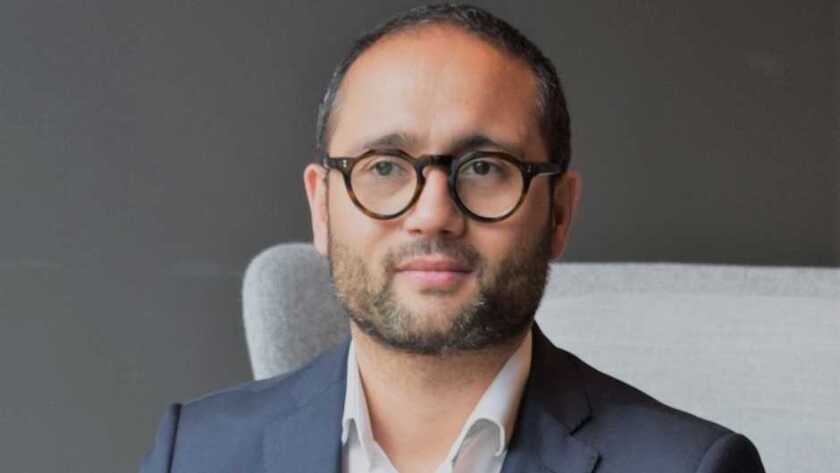The next job is his LGBT+ advocacy work, which is centred on “driving LGBT inclusion and initiatives focused on supporting the business and LGBT+ people across our footprint”. The last role focuses on Vodafone Foundation’s philanthropic work.
Like many people, Shegar-Astoralli starts his day with a walk with his dog out in the forest. He takes the opportunity to reflect on what has been happening but also to think through his competing priorities of the day – which, in light of these multiple roles, comes as no surprise.
“I can spend my day moving from having a discussion on a product roadmap to a conversation about domestic violence, or LGBT+ inclusion. So, you really find yourself traversing very different topics.”
Despite all these competing factors, one thing central to all of them is the use and importance of technology and innovation, and how this continues to connect people and drive value.
“Today we see technology connecting almost everything, and increasingly we see the power of technology addressing some of the world’s most pressing issues,” says Shegar-Astoralli.
“That’s everything from how we encourage more young girls into STEM to driving more digital education for the elderly, all the way to Bright Sky – an app which supports anyone in an abusive relationship. So, it’s really quite varied.”
By his own admission, his days are long and often have no clear end-time in sight, but he wouldn’t have it any other way.
“Sometimes you just do need to be there to help, where you can and how you can.”
When he does have free time, he says it’s all about getting out with his husband, meeting up with friends and trying to do some stuff outdoors because, as he puts it, “we are confined to these white cubes”.
As the conversation turns to his experience as a member of the LGBT+ community in the telecoms/tech industry, Shegar-Astoralli says that, like all verticals, it’s a mixed bag, and issues are not specific to any one sector.
“There have been some really amazing moments, but I think in any industry or sector you will have people that don’t agree with your agenda, or they don’t agree with your ‘lifestyle’,” he says.
“But balancing this are the leaders and strong allies that do support and assist in driving the agenda.”
Speaking on his experiences at Vodafone over the past two years, he says that it has been exceptional, crediting them as “really leaning into the diversity topic” and citing the Covid-19 pandemic as helping all businesses realise “that people’s emotional needs don’t stop when they start work”.
What this means for businesses wanting to follow in the footsteps of Vodafone is that, ultimately, it’s about creating a space and the support structures so that people can be their full and authentic selves.
“What I think we should be doing as an industry is collaborating more on diversity, particularly where there are common needs. We also need to continue to focus on better representation of women and people from diverse backgrounds so that the business better reflects their communities,” Shegar-Astoralli explains.
Vodafone has launched a ‘withstander training’ programme, which encourages employees to stand up against inappropriate behaviours in the workplace and be active allies.
“Stand with them,” Shegar-Astoralli says. “When a situation involves someone from a marginalised background, help them redirect the traffic and, if needed, put your hand up and say, ‘I’ll take this’.”
“I think it’s really important that we provide people in the business with the skills to navigate those situations, because often people will see something wrong but may not know how to interact, or how to step forward.”
Looking ahead, Shegar-Astoralli is developing an app project with Stonewall, Europe’s leading LGBT+ lobbying group, on hate crime reporting.
“So, this app will allow a LGBT+ person to orientate themselves in a location they are in, see LGBT+ friendly businesses, understand what support services are available in that area, provide travel advice, and connect them to events. And if something does go wrong, there will be functionality to geolocate and report a crime.”
The key takeaway from this work, Shegar-Astoralli says, is that “whether it was a story from someone in Kenya who was worried about a workplace environment, or a couple in Lisbon who were accosted by a man because they were lesbians, everyone in the community we spoke to had a story to tell.”
“People are saying ‘we need help, we need support’ and I think this is where technology can play a key part.”






